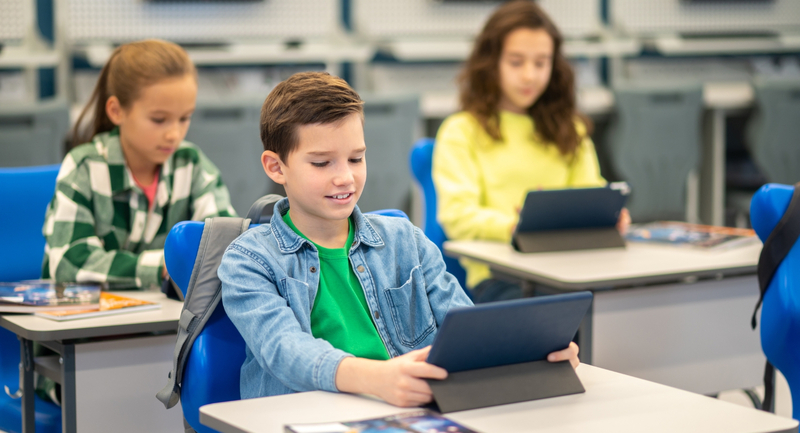Plenty of past studies have suggested family engagement is critical to student success. But none ever envisioned the expanded home-school connection that resulted from virtual learning amid widespread school closures. Now, with the tumult of remote learning in the rearview mirror (hopefully), what can—and should—that engagement look like as students return to full-time in-person school this fall?
That overriding question is the focus of a new report, Embracing a New Normal: Toward a More Liberatory Approach to Family Engagement, by the Carnegie Corporation of New York.
Coauthored by renowned family engagement expert, Karen Mapp (read our interview with her), the report calls for embracing the “new normal” of the post-pandemic school-family dynamic, and for seizing the moment to build a “family engagement that is liberatory (free of dominance), solidarity-driven (in union and fellowship), and equity-focused (fair and just).”
According to the report, not only has the pandemic exposed glaring inequities that families can help schools address, it also caused school closures beginning in March 2020 that “broke the imagined boundary that existed between home and school.”
Thus, the “liberatory” aspect of parent engagement focuses on equity while leveraging this newly forged school-home union. Indeed, prior to the coronavirus, the report observes that many families were overlooked and devalued, or treated as spectators in their child’s education. The new post-pandemic approach should be asset-based to recognize the variety of strengths parents can provide to student learning. Moreover, engagement needs to be collaborative and codeveloped by educators and families, and it should be systemically embedded so it is not perceived as an add-on but is an accepted part of good practice.
In conjunction with the report’s release, Carnegie hosted a webinar that featured U.S. Deputy Secretary of Education Cindy Marten, San Antonio Superintendent Pedro Martinez, and President of the National Parents Union, Keri Rodriguez. The discussion highlighted the promise of greater family engagement along with existing challenges.
Rodriguez reminded educators of the mistrust many parents have of their local school system, particularly among formerly disengaged families.
But the parent trust issue is one that crosses most demographic boundaries. A surprisingly high number of students did not immediately flock back to in-person learning when given the opportunity this spring as the pandemic’s spread slowed across the country. Though the individual reasons varied—health concerns, transportation, continuity, convenience to cite but four—it was a powerful reminder that many families have adopted a skeptical wait-and-see approach to school reopenings.
Still, just as there is a new appreciation for the professional development educators need to deliver effective instruction in various modalities—virtual, in-person, hybrid—there is also greater recognition of the need to embed parental engagement PD into induction programs. Because so many students attended school from home this past year, utilizing parents as true instructional partners is now both more accepted and effective.
There is more work ahead, however. Although Deputy Secretary Marten confirmed that schools and districts can use funds from the American Rescue Plan for parent and family engagement, and in fact need parental input to develop their spending plans, she conceded that there was currently no means to measure or ensure this participation.
While real family engagement can and should be a priority for most school leaders, the systems and metrics to sustain this movement still need to be put in place. The report concludes by urging the education sector to “walk through the door opened by the dual pandemics of COVID-19 and systemic racism and to embrace a new normal for family and community engagement.”





